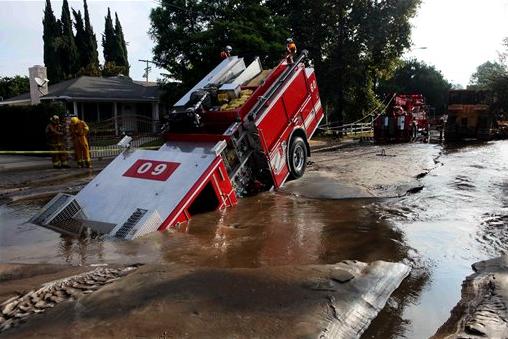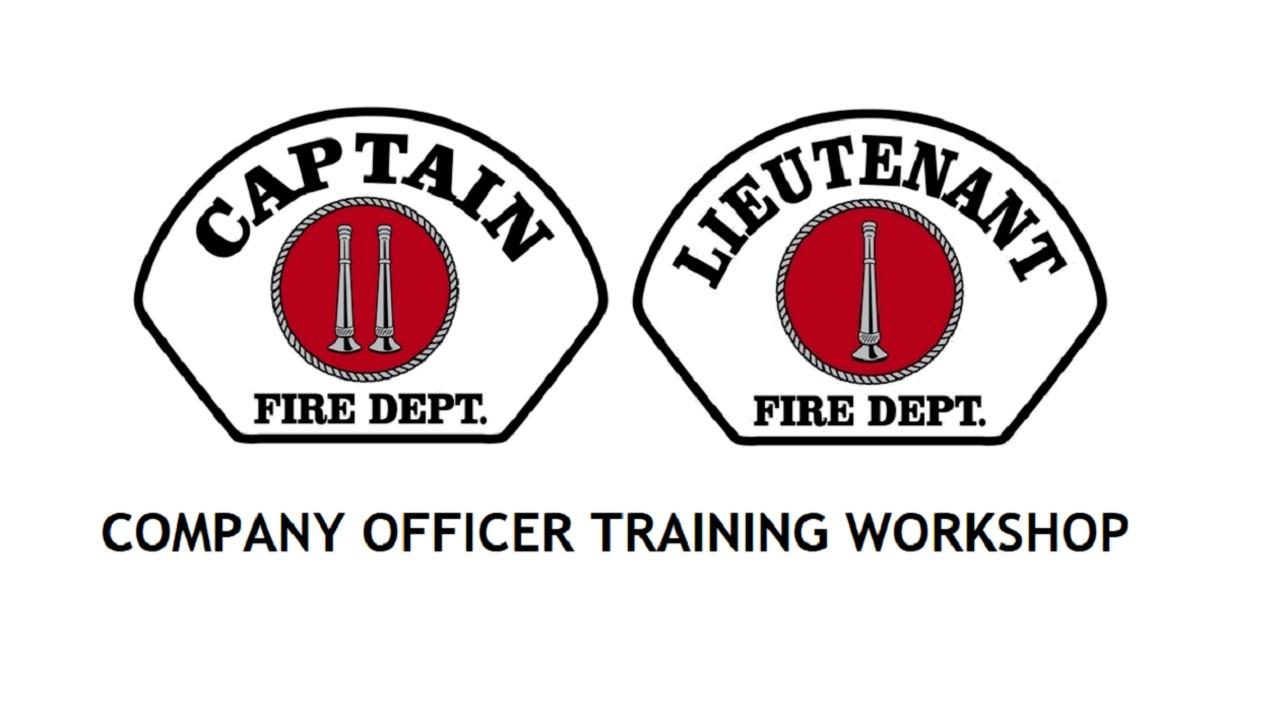How Will You Deal with Citizens Broadcasting on FB Live, as a Company Officer?

By Dean Guccione - April 17, 2019
There is no question that we now live in the age of instant gratification, and part of that gratification is instantly seeing what’s going on in the world, what’s going on with our families and friends by seeing it all on the various social media platforms.
This brings me to what I want you to think about today, not only as a Company Officer candidate, but in your current position as a firefighter, firefighter/paramedic, or driver/engineer/chauffer.
Since we live in a world of Samsung Galaxy and iPhone cameras, and when the crowd gathers at an emergency scene, citizens are instantly sharing LIVE, what the fire service is doing, both well, and not so well for everyone to see.
It used to be one thing that citizens would video tape or take pictures of firefighters on the emergency scene, but now their video cameras are directly connected Facebook Live, YouTube Live, Twitter, Instagram, and many other platforms, as they catch the good, the bad and the ugly of what we do in serving the citizens of our communities.
So, my question for you today is, “how are you going to respond to the citizen doing a Facebook Live on your next structure fire, vehicle extrication, or full arrest out in the street?”
I have several suggestions. The first is to always be training. As a Company Officer, it will be your responsibility to ensure your crew is properly trained in all the disciplines you’re department is responsible for, and that you and your crew must maintain your basic skills in the fundamentals of firefighting, rescue, EMS, and auto extrication.
Next, if you or your crew makes a mistake while someone has their camera pointed at you, recovery is the key.
Practice recovering when you’re doing real-time training. Discuss recovering with your crew, as part of your training, because mistakes do happen, especially at the most inopportune times.
And third, if a major mistake happens on the fireground or on any other type of incident, as a Company Officer, it’s imperative that you let your Battalion Chief or District Chief know what happened, so they can be proactive and advise the Deputy Chief and Fire Chief of what happened, so they can get out in front of the problem and address the issue before it gets 2 million views on Facebook or Instagram.
Training is More Important than Ever
As firefighters, we need to be competent at our craft. We perform highly skilled firefighting evolutions and functions, perform very difficult technical rescue functions in confined spaces and trenches, as well as perform a multitude of other types of rescue functions involving EMS, vehicle accidents, hazardous materials, and other service calls.
We’re basically the catch-all when it comes to emergencies. “Just call the fire department. They’ll know what to do!”
With that said, our training couldn’t me more important in these times of social media and an unexpected camera documenting our every move.
If we find ourselves in front of a the camera on an incident, or worse yet, we’re being videoed on Facebook Live, our competence becomes more important than ever.
So, when you train, train like it’s the real deal. If you’re training on a hose evolution for an interior attack, then be in full turnouts with SCBA, with all of your tools in hand, just like it’s the real deal.
Your body reacts differently when you have 75 extra pounds of gear on your back, so you’ve got to be ready.
Another part of your training should include familiarizing yourself with the streets and buildings in your first in district.
The more familiar you are with the streets, access, hydrant locations, building types and occupancy types in your first in, the fewer surprises you’ll encounter when an actual structure fire or emergency happens on a particular street.
As we all know, access problems to a neighborhood or street can exponentially complicate operations whether it’s due to narrow streets, cars parked on the curb, or trees and other obstacles impeding our access to the scene.
If we’re always thinking about the fundamentals as part of our training, and have a good working knowledge of our first-in, the chances of a making mistakes will be significantly reduced, and if you do make a mistake, work as quickly as possible to recover and then look ahead to what you need to do next.
Recovery is Everything
We know that firefighting and mitigating emergencies is unpredictable at best. No two incidents are the same and we learn something from every call that we can use the next time we’re faced with a similar incident or situation.
But, mistakes do happen and because Murphy’s Law seems to rear its head at the wrong times, recovery is the key to a successful operation.
We must anticipate that things will go wrong and be ready to have plan B, C and D in our back pockets in the event plan A doesn’t work, or if we outright make a mistake during the operation.
The best thing is to not perpetuate the mistake by not fixing it in the first place. Many times, if we don’t recover from a mistake, it will cause major problems for us, as we progress into the incident, so the first thought you should have when a mistake occurs is how to quickly fix it and move on.
If cameras are on you and you don’t recover from a mistake immediately, and the scene continues to deteriorate, it’s going to look bad for whoever’s agency is on that Facebook Live.
As we know, it’s always better to take a few extra seconds to do things right the first time.
Sometimes we never have time to do it right the first time, but we always have time to do it over again.
This statement cannot be more true!
We’re all human and occasionally we make mistakes, but the key is to minimize the mistakes with continual training on the basics and recover quickly when do make a mistake.
Many times if a camera is rolling and we make a mistake, but recover quickly, no one is the wiser!

Advise Your Chief of Major Mistakes
Another suggestion in dealing with the microscope era we live in as firefighter, is to quickly advise your superior Officers when a significant mistake occurs on an incident.
You never want to sweep problems or mistakes under the rug, especially if the civilian press is out in full swing sharing your incident live with millions of prospective viewers.
The best thing we can do when operations go wrong is to first advise the Incident Commander of the problems encountered, so he/she can immediately get out in front of the issue.
The IC may or may not be a Chief Officer. If there is not a Chief Officer on scene, request one, and advise them of the issue when they get on scene, and that there were witnesses and cameras who caught the mistake on video.
When your agency can get out in front of problems or issues that are caught on video, it’s always best to describe what happened and what the department is going to do to prevent such mistakes from happening in the future.
A department that will remain unnamed, tried to cover up mistake with a series of lies, that went up the chain of command, and the conspiracy to cover up the incident ended up being worse than the mistake that occurred.
Needless to say, the Fire Chief of that agency is no longer the Fire Chief. Other Chief Officers were also fired and disciplined for lying to the public and for abuse of power.
I can’t think of any instance where it’s not better to eat some crow and then work to improve those areas where improvement is needed.
You never want to lie about making mistakes. Occasional mistakes occur because our work is unpredictable and we are humans trying to control an uncontrolled situation or environment and when we’re faced with situations we’ve never seen before, sometimes things don’t always go as planned.
Final Thoughts
More and more the cameras are rolling when we pull up on scene, and the unfortunate trend of Facebook Live, Instagram Live, and YouTube Live, where civilians are broadcasting like the news, can capture mishaps and mistakes during emergency incidents.
Anticipating that the cameras will be rolling on Facebook and Instagram is just another problem that we have to deal with as firefighters.
It’s how society is changing, so we need to change with it and actually embrace it.
Because we know the cameras are hot, we must focus more on the fundamentals of training and recovering when we make a mistake, so we don’t perpetuate that mistake into a major operational roadblock that adds more time to getting a line on the fire, or rescuing a civilian whose trapped in a vehicle, or any number of other issues that can delay us in performing our job at the highest level.
If it’s been more than a couple of months since you’ve wrapped a hydrant, pulled hose, breathed air on a structure fire, set up the Jaws, laddered a building, or worked a full arrest, then knock the cobwebs off and take your engine or truck company out and perform some of these basic skills.
You’ll be surprised that some rust may fall off as you train. Muscle memory takes constant practice to maintain. I play drums and guitar and I know when I don’t pick up my drum sticks for a couple of months, I lose my chops and I have to get out the practice pad and work on my muscle memory.
Training is the same. So, incorporate recovery into your training and talk about different ways to recover from mistakes. Practice having your supply line kinked, especially when charged and work through ways you can fix it quickly, so when it happens in real life, you’ll have water to the front door when you need it.
And finally, if significant mistakes are caught on video or worse yet, broadcast on Facebook Live, be sure let your superior Officers know so they can get in front of it and slow down the damage that can occur to your agency.
Don’t worry about making mistakes. We are all human and mistakes happen.
But it’s how we react to those mistakes that will lessen exposure and the damage to your department.
As a Company Officer candidate, this article is just a reminder of the responsibility that you take on with the position.
This is just one of the new issues you will have to deal with in your new role as a Lieutenant or Captain, but it’s okay.
Look at mistakes as learning opportunities, and don’t be embarrassed about mistakes.
Again, it’s how you react to the mistake that matters.
No one can fault you for doing the right thing after a mistake occurs.



